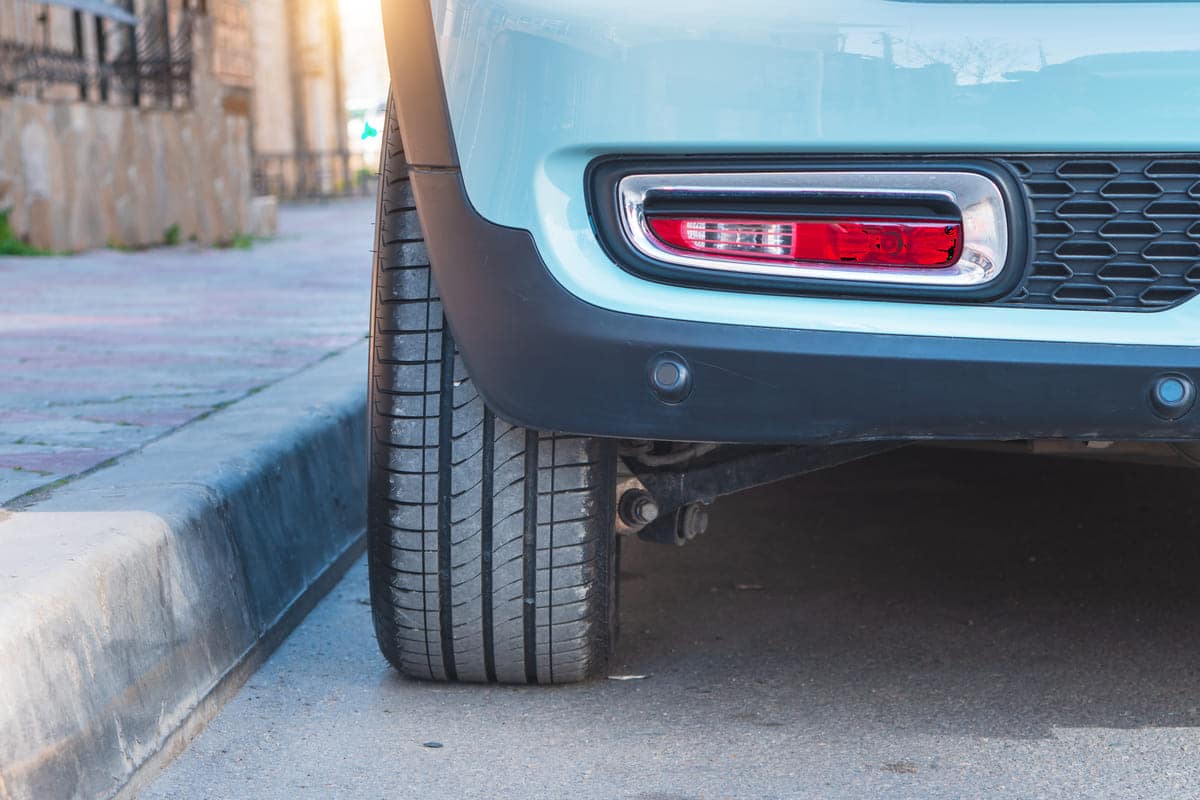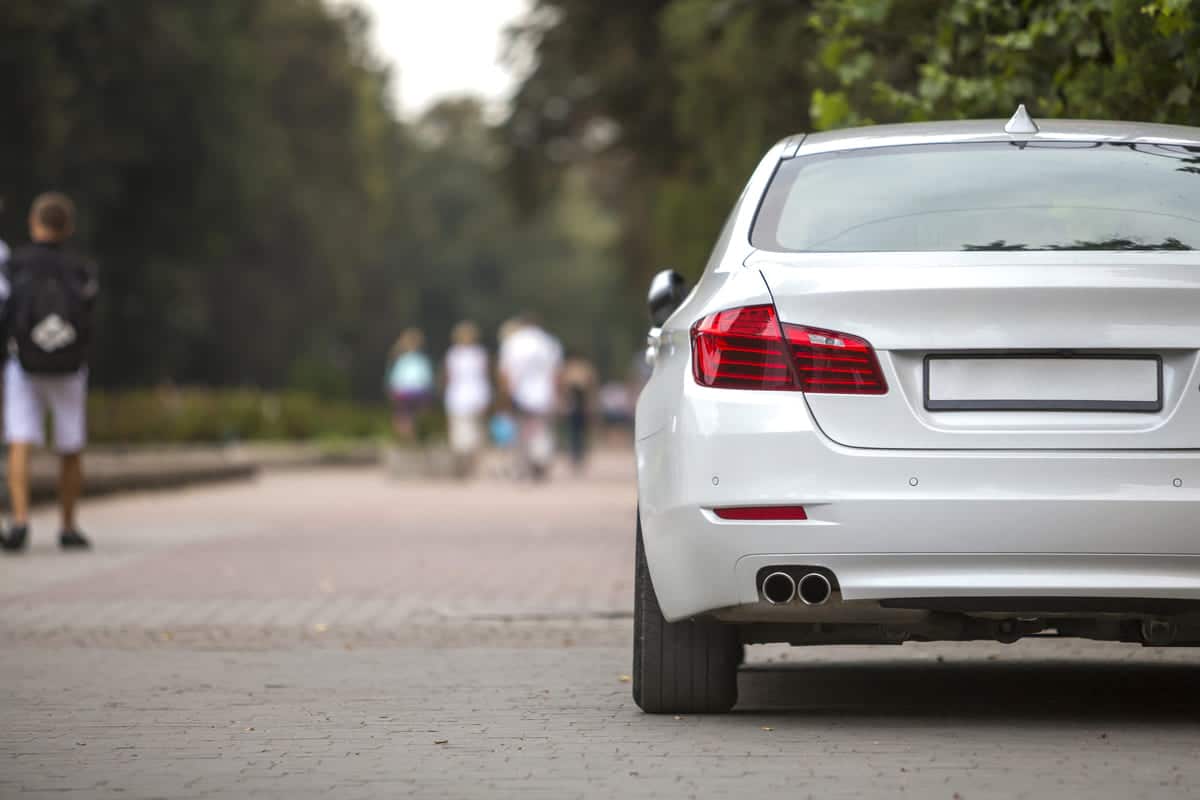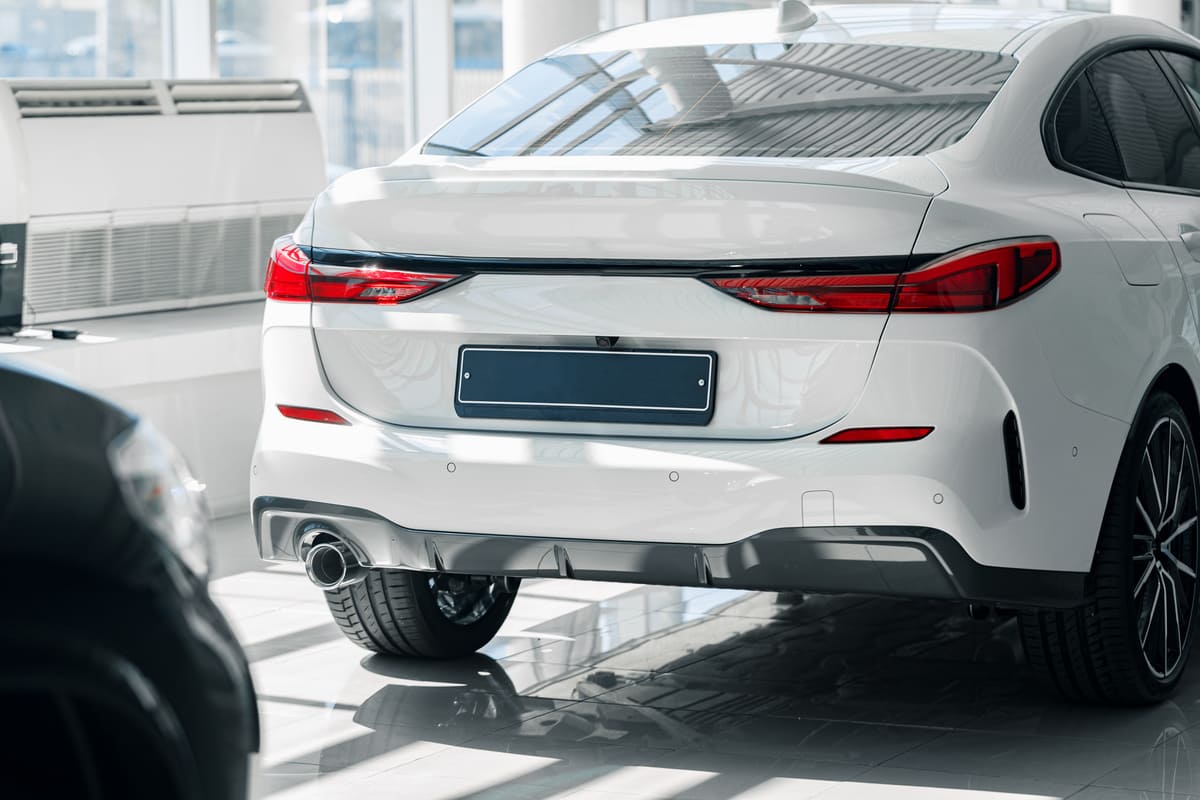Parking sensors that come in most modern cars assist you during parking. These systems use advanced technology to detect nearby objects and give you visual or audible signals. This reduces the chance of small accidents and improves parking.
What is the Parking Sensor?
A parking sensor is a device in the motor vehicle that helps you park by detecting obstacles. It uses sound waves to sense objects around the .
When you park, the sensor sends out sound waves. These waves bounce back when they hit something, like a wall or another car. The sensor then measures how long it takes for the waves to return.
The car’s system uses this information to calculate the distance between the car and the obstacle. If you’re too close, the sensor gives you beeps or visual signals on your dashboard.
Many cars have parking sensors in the front and back bumpers. Some even have them on the sides. This way you can avoid hitting anything from any direction.
Parking sensors are very useful in tight spots and crowded areas. They make parking less stressful by giving you an extra set of “eyes.”
References
- Parking sensor. Wikipedia. Retrieved from
- Parking sensor. Collins Dictionary. Retrieved from
What are the Types of Parking Sensors for Car?
Parking sensors help you avoid hitting obstacles when parking. Different types of sensors use different technologies to detect objects around the car.
Ultrasonic Sensors
Ultrasonic sensors use sound waves to detect obstacles. The sensor sends out high-frequency sound waves that bounce back when they hit something. The system measures the time it takes for the waves to return and calculates the distance to the object. This type of sensor is good for detecting objects near the car.
Electromagnetic Sensors
Electromagnetic sensors create an invisible field around the vehicle. When an object enters this field the sensor detects it. This type of sensor doesn’t need moving parts and is good at low speeds. It’s good in tight parking spaces.
References
- Parking Sensor Working and Its Applications. Elprocus. Retrieved from . Retrieved on 07 August 2024

What is the Principal of Working Parking Sensors?
Parking sensors help you park cars safely by detecting obstacles. Here’s how they work step by step:
Step 1: Emitting Signals
The sensors emit signals, usually sound waves or electromagnetic fields, around the car. This creates a detection zone.
Step 2: Detecting Obstacles
When an obstacle enters this zone, the signals bounce back to the sensors. This return signal tells the system there’s something nearby.
Step 3: Measuring Distance
The system calculates the time it took for the signal to return. Shorter times mean closer objects, longer times mean farther objects.
Step 4: Sending Alerts
The system gives you beeps, lights or on-screen displays. The closer the obstacle the more frequent and urgent the alerts.
Step 5: Assisting the Driver
With these alerts you can maneuver the car safely and avoid obstacles. This makes parking less stressful.
References
- What is Parking Sensors in Cars. Go Digit. Retrieved from . Retrieved on 07 August 2024
- Car Parking Sensors: Types, Functions, and Maintenance. Wuling. Retrieved from . Retrieved on 07 August 2024
What are the Benefits of Parking Sensors?
Parking sensors have many benefits that makes driving and parking easier and safer.
Safer
Parking sensors prevent accidents by detecting obstacles you can’t see. They alert you before you hit something, reduces the damage.
Easier Parking
Sensors make parking in tight spaces much simpler. They guide you with beeps or visual signals, makes parking in crowded areas less stressful.
Your Car
By avoiding collisions parking sensors protect your car from dents and scratches. This keeps your car looking new and saves you repair costs.
Time
With parking sensors you spend less time trying to park perfectly. The sensors give you real time feedback, makes parking faster.
Confidence
Drivers feel more confident when parking with sensor assistance. Knowing you have an extra pair of eyes helps reduce anxiety, especially for new drivers.
Better ReSell Value
Cars with parking sensors have higher trade in value. Buyers like the added and convenience features of these sensors.
Some insurance companies offer lower premiums for cars with parking sensors. Less accidents means you may pay less for your insurance.
References
- Car Parking Sensors. Dubizzle. Retrieved from on 07 August 2024

What are the Features of Parking Sensors?
Parking sensors have many features that makes them more usable and effective. Here are some:
- Obstacle
- Audible Alerts
- Visual Indicators
- Multiple Sensor Placement
- Compatible with Cameras
- Weather Proof
- Adjustable Sensitivity
- Self Diagnosis
How to Maintain the Parking Sensors?
Proper care keeps your parking sensors working well and prolongs their life. Follow these tips to keep them in top shape:
Clean Regularly: Dirt and debris can affect sensor accuracy. Clean the sensors gently with a soft cloth and mild soap. Avoid harsh chemicals that can damage them.
Check for Damage: Check the sensors regularly for physical damage. Look for cracks, loose wires or any signs of wear and tear. Replace damaged sensors immediately.
Test Functionality: Test the sensors regularly to make sure they are working. Drive slowly towards an object and listen for beeps or look for visual indicators. If something is off, troubleshoot or seek professional help.
Avoid High Pressure Washes: High-pressure water can damage the sensors. When washing your car, use a gentle stream of water around the sensors to avoid any harm.
Professional Inspection: Have a professional check your parking sensors periodically. They can do a thorough inspection and fix any issues you may have missed.
Software Update: If your parking sensors are part of a system, make sure to update the software. Manufacturers release updates that improve performance and fixes bugs.
Follow these and your parking sensors will keep helping you park safe and precise.
References
- Parking Sensors. Parking Sensors. Retrieved from https://gomechanic.in/blog/parking-sensors/. Retrieved on 07 August 2024


